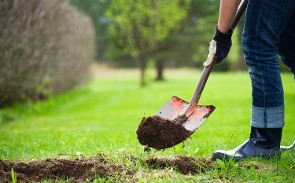Wildfire Preparedness: 5 Essential Steps to Protect Your Home and Community

From 2013 to 2022, an average of over 60,000 wildfires burned 7.2 million acres each year. Since the 1990s, the number of homes in wildfire perimeters has doubled. No matter where you live, preparation can help prevent wildfires and reduce the risk of property damage or injury. Here are five key steps you should take:
1. Strengthen Your Home’s Defenses
-
Install smoke alarms and carbon monoxide detectors—and test them regularly.
-
Clear debris, wood, brush, and combustible material from around your home. Readyforwildfire.org offers detailed guidance on creating defensible space zones.
-
Cover vents, chimneys, and other openings with metal mesh to block embers.
-
Clean rain gutters regularly to prevent buildup.
-
Choose fire-resistant materials when remodeling, such as metal or tile roofing and fiber cement siding.
-
Use fire-resistant landscaping materials like stone, and plant hardwood trees less prone to fire spread.
-
Ensure your home has lightning protection and grounding systems.
-
Consider installing an external sprinkler system.
2. Stay Informed and Vigilant
-
Never leave outdoor fires unattended; ensure they are completely extinguished.
-
Avoid using spark-producing equipment outdoors on dry or windy days.
-
Do not park vehicles on tall, dry grass.
-
Keep grills and propane tanks at a safe distance from your home, and avoid grilling during high-risk periods.
-
Always have a fire extinguisher and a water source on hand when working outdoors.
-
Sign up for local emergency alerts to stay aware of wildfire threats.
3. Plan Ahead for Emergencies
-
Keep an up-to-date home inventory. (Use Acuity’s Home Inventory Worksheet for help.)
-
Review your home insurance policy regularly with your independent agent.
-
Make sure everyone in your household knows how to locate fire extinguishers, hoses, and utility shutoffs.
-
Create and practice an evacuation plan for your family, pets, and livestock.
-
Maintain an emergency supply kit and a battery-powered radio. (The Red Cross has a full list of recommended supplies.)
4. Engage With Your Community
-
Participate in community wildfire preparedness programs and clean-up days.
-
Collaborate with neighbors to create a local wildfire action plan.
-
Support initiatives aimed at forest management and risk reduction.
5. Focus on Post-Fire Recovery
-
Assess property damage safely; consult professionals for clean-up and restoration.
-
Work with your insurance company and local disaster relief organizations for recovery support.
-
Implement erosion control measures and replant vegetation to stabilize the landscape and prevent further damage.
Wildfires are unpredictable but preparing today can make all the difference tomorrow. Together, we can protect lives, homes, and communities. Wildfire preparedness is a shared responsibility—and every action matters.
Sources:
* https://sgp.fas.org/crs/misc/IF10244.pdf
* https://www.scientificamerican.com/article/wildfires-threaten-more-homes-and-people-in-the-u-s-than-ever-before/
An insurance company that cares about you and insuring the things you wish to be insured.
Get a Quote> Find an Agent>

